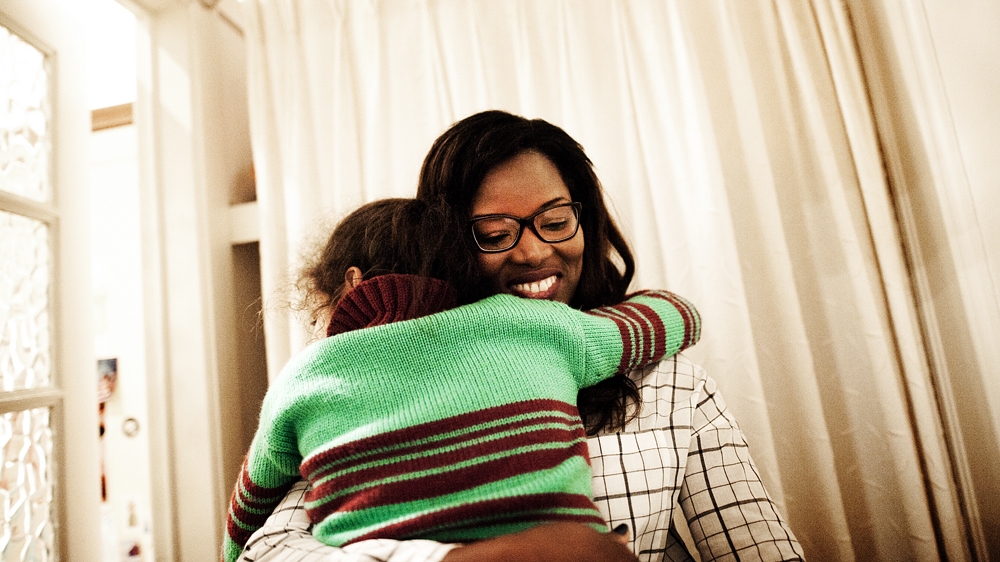You’ve probably seen the hashtag in your Twitter feed, read the stories on Facebook, or posted your own heart-wrenching stories about sexual harassment. On Sunday night, actress Alyssa Milano resurfaced a 10-year-old campaign originally created by activist Tarana Burke with the first “Me Too” tweet. Since, literally millions of women have posted the words in solidarity and shared their own stories.
And chances are, if your daughter is on social media, she’s seen those stories, too. Even if she’s too young to be on Instagram (or watch Saturday Night Live, or follow the news about her favorite actresses), your daughter has likely witnessed men or boys making inappropriate sexual comments. She may have even experienced it herself: According to one study, more than 1 in 10 American girls has experienced catcalls or street harassment by age 11.
“The news about Harvey Weinstein and Me Too is really hitting a nerve,” says Holly Kearl, founder of the nonprofit Stop Street Harassment. Though the stories are unsettling, Kearl says the positive side is that everyone is talking about it now, and it’s providing an invaluable opportunity for you to discuss the issue with the girls—and boys—in your life. “Many parents want to talk to their daughters, but they worry they’ll do it wrong, or they don’t know exactly what to say, so they wind up not saying anything,” says Kearl. Here are three ways to start the conversation:
If Your Savvy Tween or Teen Daughter Is on Social Media and Has Lots 0f Questions…

- Ask how much she already knows about the news, and what questions she has about it, and answer her honestly. You can also use this opportunity to share your own experiences from the past and how you handled them—or wish you had, says Kearl. As your girls get older and ready to go out into the working world, you can also broaden the conversation to let her know it’s not just about sex, but about wielding power, says Dana Dorfman, PhD, a New York family and child therapist.
- Give her strategies for what to do if someone harasses her or a friend. “If someone is bothering them at school or in public, they can say ‘Nope, I’m not interested,’ and walk away,” says Kearl. “But also let them know if they are being harassed, and the other person is older or in a group, they shouldn’t feel any pressure to respond in the moment. They should just get to a safe place, and talk to someone about it afterward.”
- Teach her to trust her intuition. “With older girls, let them know it’s okay to want to be attractive and to flirt with a boy, but when it crosses a line, they shouldn’t feel they are somehow responsible,” says Dorfman. “Make sure girls know they have their own inner barometer of when something isn’t right, and they should trust that and get out of the situation.
- If Your Daughter Hears You Talking About the News and Wants to Know What It’s All About
- Break it down: You can say that one very powerful man in the movie business has gotten fired because he treated women very badly, touching them sexually when they didn’t want to be touched and saying crude and mean things to them—behavior that is never acceptable in any situation. And now women all over the country are supporting each other by sharing their stories.
- Use language they relate to. In order to bring up the concept of sexual harassment without scaring your child, you can say, “Most men and boys are really nice and great to be friends with, but there are a few who think it’s okay to talk about girls in a way that’s mean or creepy. Sometimes they may touch them without permission. If you ever see this or if it happens to you, I want you to know you can talk to me about it.”

- Use real-life teaching moments. “When you see someone being disrespectful to a woman, either in the movies, on TV, or in real life, use it as a springboard to a conversation with your sons and daughters,” says Kearl. “I know what we’re seeing, but in our family that is not how we treat women.”
- Talk to her generally about boundaries.
For the youngest girls, there’s no need to bring up news that they’re not interested in or can’t understand. But you should start talking about good touching and bad touching as soon as they can understand.
- “Even at age 5 or 6, a girl may have heard someone say something to her mother’s or older sister, and you can say it is never okay for someone to talk about your body or touch you without your permission,” says Kearl.
- Model good behavior at home. “Children pick up more from listening to us talk about others than from what we say to them,” says Dorfman. This means that any time your kids overhear you referring to someone as “hot” or hear a male member of the family comment on a woman’s body, they internalize that this is acceptable behavior. “No one is born a harasser, they are just modeling behavior they have seen other people do,” says Kearl.

